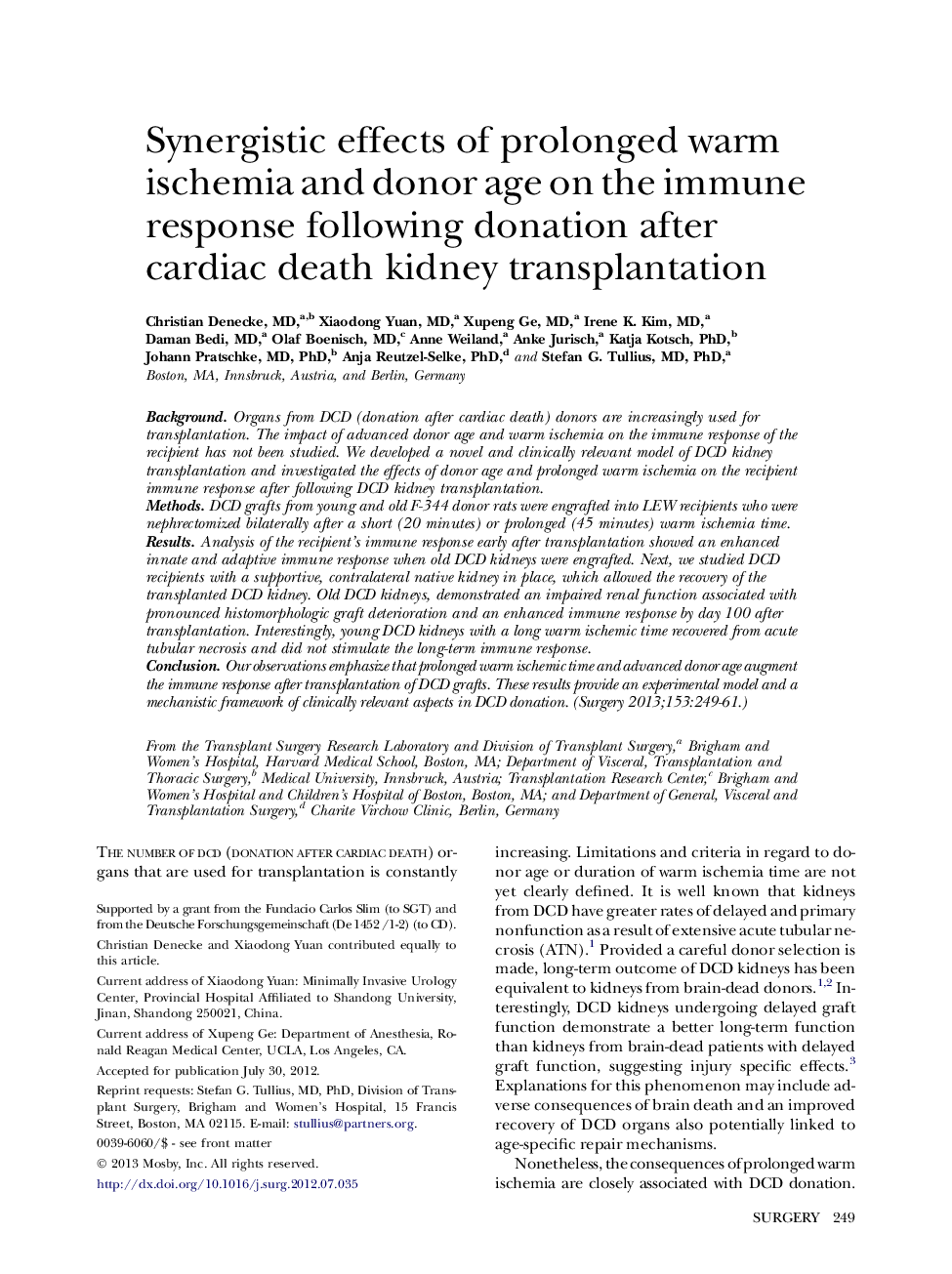| Article ID | Journal | Published Year | Pages | File Type |
|---|---|---|---|---|
| 6255755 | Surgery | 2013 | 13 Pages |
BackgroundOrgans from DCD (donation after cardiac death) donors are increasingly used for transplantation. The impact of advanced donor age and warm ischemia on the immune response of the recipient has not been studied. We developed a novel and clinically relevant model of DCD kidney transplantation and investigated the effects of donor age and prolonged warm ischemia on the recipient immune response after following DCD kidney transplantation.MethodsDCD grafts from young and old F-344 donor rats were engrafted into LEW recipients who were nephrectomized bilaterally after a short (20 minutes) or prolonged (45 minutes) warm ischemia time.ResultsAnalysis of the recipient's immune response early after transplantation showed an enhanced innate and adaptive immune response when old DCD kidneys were engrafted. Next, we studied DCD recipients with a supportive, contralateral native kidney in place, which allowed the recovery of the transplanted DCD kidney. Old DCD kidneys, demonstrated an impaired renal function associated with pronounced histomorphologic graft deterioration and an enhanced immune response by day 100 after transplantation. Interestingly, young DCD kidneys with a long warm ischemic time recovered from acute tubular necrosis and did not stimulate the long-term immune response.ConclusionOur observations emphasize that prolonged warm ischemic time and advanced donor age augment the immune response after transplantation of DCD grafts. These results provide an experimental model and a mechanistic framework of clinically relevant aspects in DCD donation.
